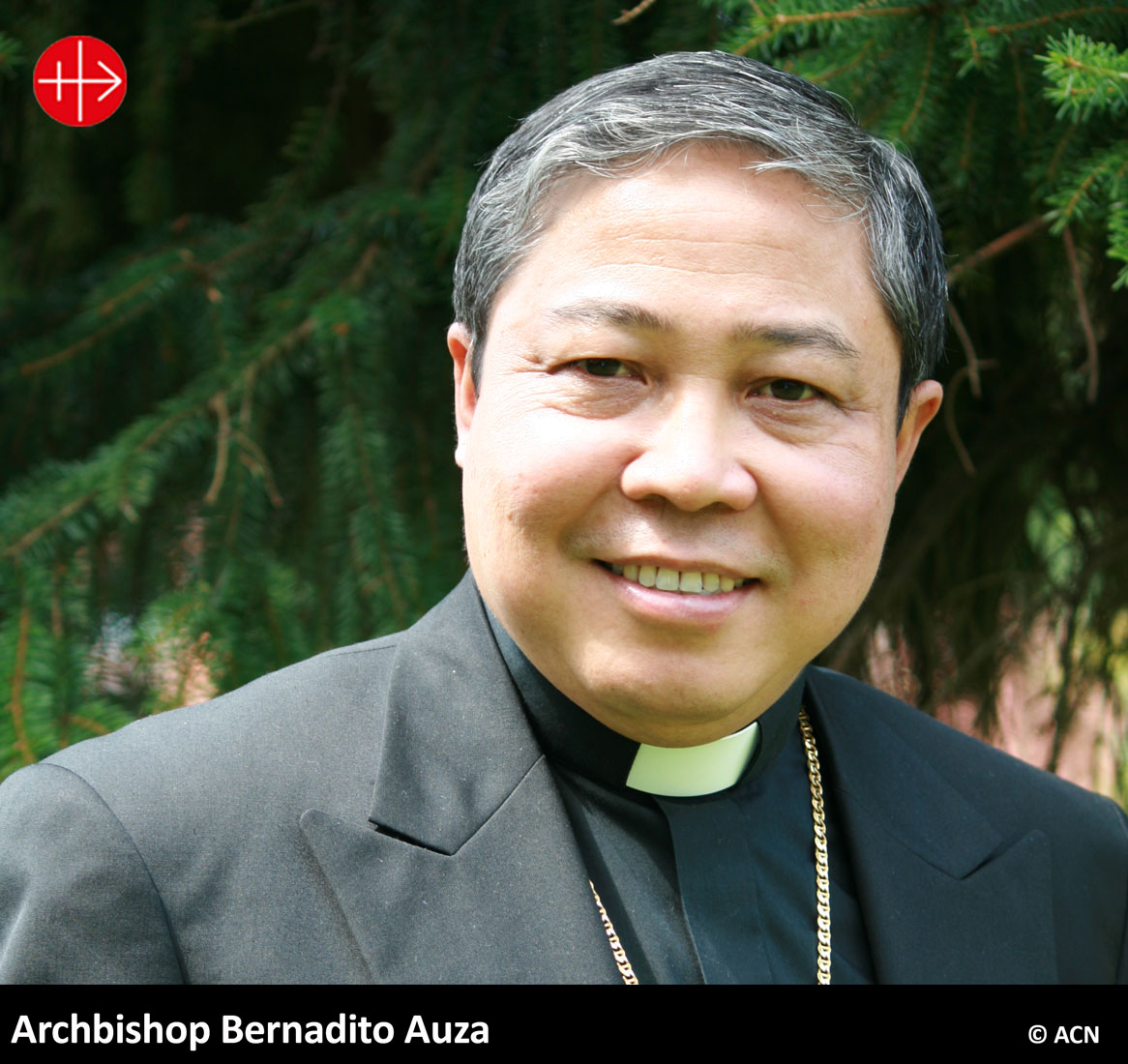Nuncio to UN demands justice for victims of Islamic State
Persecuted religious minorities in Syria and Iraq deserve a better future after suffering at the hands of the Islamic State group. That was the message of Archbishop Bernadito Auza, the apostolic nuncio leading the Holy See’s permanent observer mission to the U.N. Auza was addressing a forum for victims of Islamic State and for the civil society leaders who wanted to hold the group accountable, jointly organised by the Holy See and the U.N. NGO Committee on Freedom of Religion or Belief. Other forum participants included leaders from Aid to the Church in Need and ADF International.
The archbishop said justice for the survivors “demands that we seek to return to them, as much as possible, what Daesh pillaged from them….This means ensuring the conditions for religious and ethnic minorities to return to their places of origin and live in dignity and safety, with the basic social, economic and political frameworks necessary to ensure community cohesion.”
He praised the assistance of Aid to the Church in Need, the Knights of Columbus and other groups for their initiative to rebuild homes, schools and houses of worship destroyed by ISIS. Although this reconstruction is a “crucial step,” it is not enough. There must be “foundations for peaceful coexistence.” All these efforts are “restoring hope not only to the region but to the world,” he continued.
“We must, through education, inter-religious dialogue, and international leadership make sure that we address the polluted environments in which hatred of the other is fomented, and arduously and perseveringly work to change such cultures into ecologies where human dignity and rights, mutual respect, solidarity, fraternity and peace reign,” he said.
Archbishop Auza cited the U.N. Security Council’s Resolution 2379, adopted Sept. 21, which condemned the Islamic State’s “gross, systematic and widespread attacks directed against civilians” and demanded justice for ISIS victims. The resolution said violations of international humanitarian law and human rights abuses may amount to war crimes, crimes against humanity, or genocide. The U.N. Security Council appointed a team to investigate crimes committed by ISIS in Iraq.
Auza stated: “We are all justly repelled by the horror stories we have heard about the atrocities committed by Daesh against religious and ethnic minorities… Their stories cannot but move us to action. We wish that what they endured could have been prevented outright, but while we tragically did not stop their sufferings, we can act to bring justice for them and other victims, help them to rehabilitate and rebuild, and do everything we can to prevent similar barbarity from happening to others.”
He believes dealing with the aftermath of ISIS must include a “rock-solid resolve” to prevent atrocities in the future: “Those entrusted with protecting the innocent and safeguarding respect for fundamental human rights must live up to their indispensable and inescapable responsibility to defend those in danger of suffering atrocity crimes.”
“Similarly religious leaders have a grave and specific duty to confront and condemn the abuse of religious belief and sentiment to justify violence and terrorism against believers of other religions,” the archbishop said. “They must constantly and unequivocally affirm that no one can justly kill the innocent in God’s name and say a clear and adamant ‘no’ to every form of violence, vengeance and hatred carried out supposedly in the name of God or religion.”
“It’s not enough to defeat, punish, and disband Daesh. We also must eradicate the pseudo-religious, dehumanizing, hateful, and indeed barbaric ideology that motivates it and similar extremist groups.” This would involve addressing the social, political and economic issues which ISIS exploited to recruit and radicalise others
Victims also need to feel safe so it is vital to creating cultural conditions in which the rights of religious and ethnic minorities are respected. The archbishop stressed that all citizens must be equal before the law, regardless of religion, race, or ethnicity and have an established right to religious freedom and freedom of conscience with legal recourse when such rights are violated.





